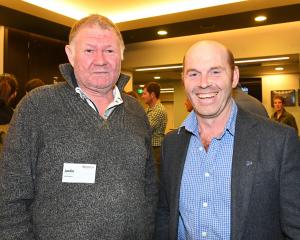In a recent report, council environmental monitoring and operations director Scott MacLean said that ''extreme rainfall and flood events'' could result in infrastructure failures, especially ponds overflowing and land becoming saturated.
''Historically, council has not taken action on these matters, as we view the extreme weather event as ''out of their control''.
But if council staff we were to observe ''deliberate and intentional actions'', such as pumping of an effluent pond into a flooded river, we would consider that action to be ''highly culpable'' and enforcement action could be considered, he said.
The council used a ''range of enforcement tools'' in response to non-compliance with the Regional Plan: Water for Otago.
These tools included education, warnings, and directions through to infringement notices and prosecutions.
There were 451 operating dairy sheds in Otago, and a total of 48 dairy farms had been found to have one or more breaches of the rules that could result in adverse effects on the environment in the financial year ending on June 30.
Reasons for non-compliance were: stalled and failed travelling irrigators, discharges on saturated soils, overflowing ponds and sumps, ponding, and discharges to rivers.
Eight prosecutions had been initiated during the financial year ending on June 30 this year.
Many environmental and infrastructure outcomes had flowed from these prosecutions.
Outcomes in specific cases included. -Replaced split hose, implemented new monitoring system, remedial work on winter shed storage to ensure effluent overflow prevented in future.
Extensive infrastructure upgrade, including installation of 5500m of effluent lines, in ground, and associated hydrants; donation to an environmental project, which included a fish survey and riparian planting.
Installation of new stone trap; pump; fail-safe remote pond level monitoring device.
Carrying out native planting of swales on the subject property; attending ITO effluent course; whole new effluent irrigation system; involvement in a local environmental community group.
Committing to employing another full-time staff member this year to increase management capabilities.
Arranging for a 1.6ha riparian strip of native plants.
Council staff had noticed ''a lot of infrastructure changes'', either through voluntary steps or in association with court prosecution and/or diversion.
''However, having excellent infrastructure does not mean you have good management structures in place to maintain and monitor the systems and train staff on the importance of effluent management.''
Mr MacLean said a ''balanced approach'' between reinforcement of good practice/behaviour and compliance/enforcement was needed.
The council approach should support the dairy industry in ''achieving good water quality outcomes,'' Mr MacLean said in a recent report.












